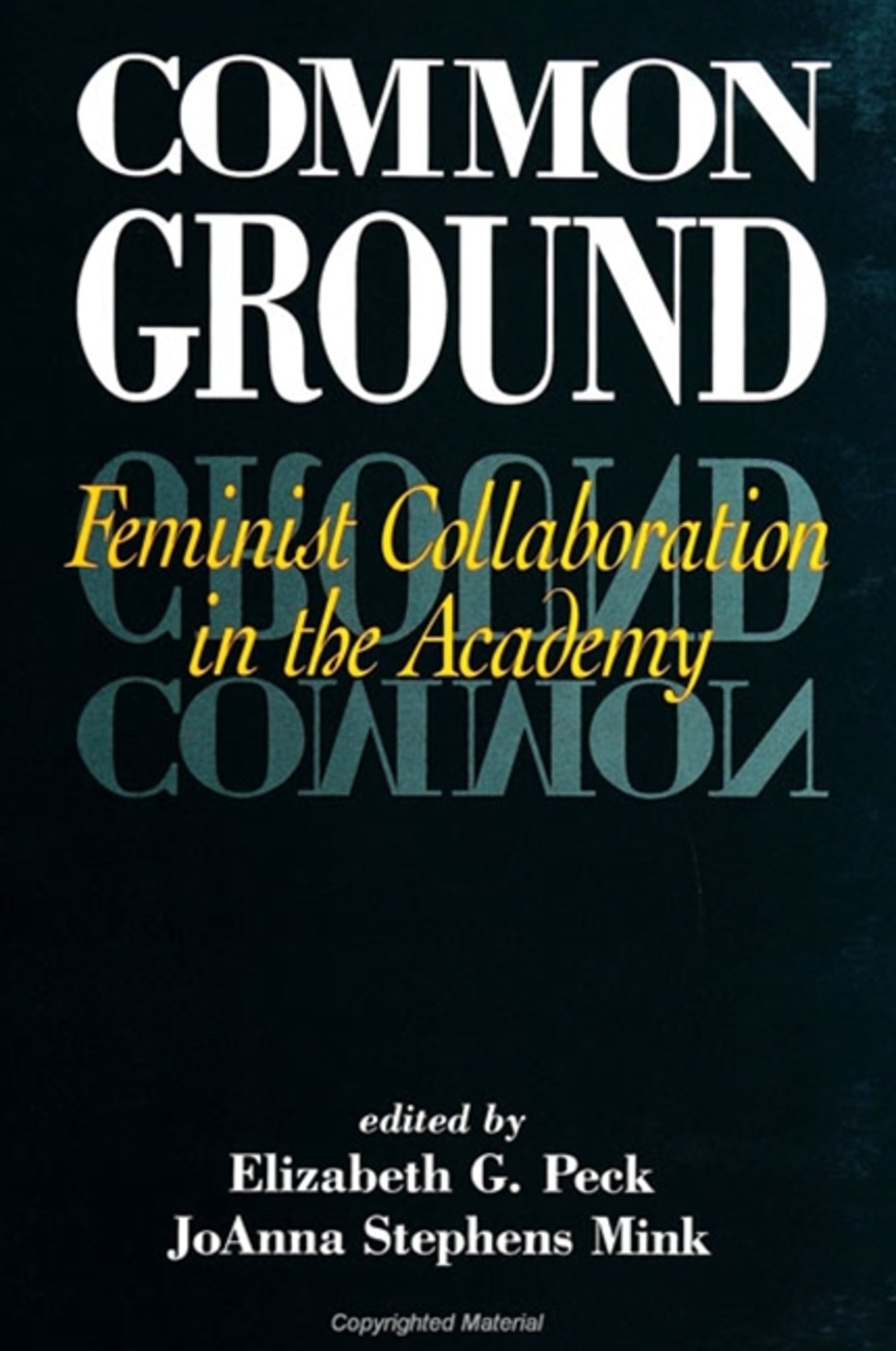We're sorry. An error has occurred
Please cancel or retry.
Common Ground

Some error occured while loading the Quick View. Please close the Quick View and try reloading the page.
Couldn't load pickup availability
- Format:
-
13 November 1997

This examination of feminist collaboration reconceptualizes ideas about creativity, cooperation, and competition in higher education.
Placed within the context of the academic environment, this multi-focused book identifies students as active contributors and learners; faculty as researchers, teachers, and learners; and administrators as a synthesis of all three modes of collaboration. While focusing on the mutuality of educational enterprises, Common Ground raises provocative questions about the dynamics of gender and cooperation at various levels of academia. It reveals the transformative power of collaboration by challenging traditional notions of single authorship and beliefs about knowledge as individually owned and acquired. By offering different perspectives on feminism and collaboration, this book establishes the basis for re-thinking Romantic notions about creativity, re-conceptualizing conventional ideas regarding competition, and re-reading traditional hierarchies and authoritarian relationships.


"This is an extremely important topic because it deals with a way of teaching and writing and learning, i.e., collaboration, that may prove to transform the academy; this could be one of the first handbooks for revolution without in any way sounding extreme. In its range of collaborative relationships, it speaks to the different roles that professors play as teacher, scholar, and participant in college projects and activities. It suggests that collaboration is a way of integrating these roles and cross-fertilizing ideas. This book may inspire innovation in the classroom." — Meta Plotnik, Nassau Community College
"For those intrigued by the possibilities of collaborative teaching or scholarship, this book will provide a wealth of models and approaches as inspiration." — H-Net Reviews (H-USA)
Acknowledgments
Introduction
Elizabeth G. Peck and JoAnna Stephens Mink
1. "Educate, Organize, and Agitate":
A Historical Overview of Feminist Collaboration in Great Britain and America, 1640–1930
Melodie Andrews
2. Beyond Feminism: An Intercultural Challenge for Transforming the Academy
Paula D. Nesbitt and Linda E. Thomas
3. Writing against the Romantic Grain
Carol Shiner Wilson and Joel Haefner
4. In League with Each Other: The Theory and Practice of Feminist Collaboration
Carol J. Singley and Susan Elizabeth Sweeney
5. What's Feminist about It? Reflections on Collaboration in Editing and Writing
Helen Cafferty and Jeanette Clausen
6. Self-Connection Shared: Integrating Collaborative and Autonomous Impulses within Feminist Projects
Kimberly A. McCarthy and Sandra A. Steingraber
7. The Role of Talk in the Writing Process of Intimate Collaboration"
Mary Alm
8. Merge/Emerge: Collaboration in Graduate School
Constance L. Russell, Rachel Plotkin, and Anne C. Bell
9. Lesbian Collaboration and the Choreography of Desire
Angela M. Estes and Kathleen Margaret Lant
10. Common Ground, Difficult Terrain: Confronting Difference through Feminist Collaboration
Mary Ann Leiby and Leslie J. Henson
11. Collaborative Leadership: Feminist Possibility, Feminist Oxymoron
Diane Lichtenstein and Virginia Powell
12. Reflections on Scholarly Collaboration
Anne O'Meara and Nancy R. MacKenzie
13. Going against Nature? Women's Resistance to Collaborative Learning
Sally Barr Ebest
14. Revisioning Space: From Territoriality to Collaboration
Elaine Allen Karls and Roslyn Z. Weedman
15. Feminist Theory and Practice and the Pedantic I/Eye
Jamie Barlowe and Ruth Hottell
Biographical Notes
Index



